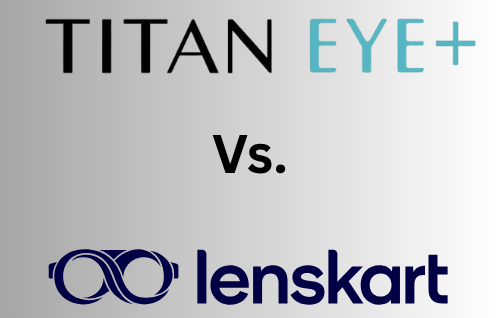Navigating Trademark Protection in the Digital Age: The Titan vs. Lenskart Case

Introduction
The Delhi High Court delivered a noteworthy judgment on May 30, 2025, in the case of Titan vs. Lenskart Solutions Pvt. Ltd., addressing crucial issues of trademark infringement and passing off in the context of digital marketing practices. The plaintiff alleged that the defendants unlawfully used their trademarks in a manner likely to mislead consumers, reflecting the growing challenges of intellectual property protection in the online marketplace. This case serves as a pivotal example of balancing technology-driven commerce with established legal frameworks.
Background of the Case
Titan Company Limited, a renowned brand in the retail and accessories market, holds registered trademarks for “TITAN” and “FASTRACK,” among others. These trademarks represent their brand identity and market goodwill built over decades. The company discovered that Lenskart Solutions Pvt. Ltd., a prominent eyewear retailer, had used their registered trademarks as metatags in the source code of their website. This practice potentially diverted online search traffic and customer attention intended for Titan to Lenskart’s website, leading to allegations of unfair advantage and dilution of the plaintiff’s brand reputation. In response, Titan issued a legal notice to the defendants on February 13, 2025, demanding that the infringing practices cease immediately. The plaintiff argued that such actions amounted to trademark infringement and passing off under the Trademarks Act, 1999, and posed a significant threat to their business interests.
Legal Provisions
The legal framework for this case primarily relied on provisions of the Trademarks Act, 1999. Section 29 safeguards against the unauthorised use of registered trademarks, protecting them from actions likely to confuse consumers or harm the reputation of the mark. Section 27 offers remedies against passing off, ensuring that businesses cannot exploit another’s goodwill for unfair advantage. Section 135 outlines the available remedies for trademark holders, including injunctions, damages, or accounts of profits. Furthermore, the plaintiff’s arguments emphasised the broader principle of preventing trademark dilution, which seeks to protect the distinctiveness and uniqueness of a trademark from being ruined.
Rival Contentions
Appellant’s Contentions
Titan Company Limited contended that the defendants’ use of their registered trademarks as metatags and website references constituted a clear case of infringement under Section 29 of the Trademarks Act. They argued that the use of these trademarks misdirected online consumers searching for Titan’s products to Lenskart’s website, effectively diverting potential customers and tarnishing their brand’s goodwill. The plaintiff further asserted that such actions amounted to passing off, where Lenskart leveraged Titan’s established reputation to gain an unfair advantage in the competitive marketplace. They emphasised the detrimental impact on their business and reputation, seeking a permanent injunction to prevent further infringement and ancillary reliefs.
Respondent’s Contentions
Lenskart Solutions Pvt. Ltd., represented by legal counsel, acknowledged the use of Titan’s trademarks on their website but contended that it was an inadvertent mistake rather than a deliberate infringement. They stated that all references to the plaintiff’s trademarks had been removed promptly upon receiving the legal notice. The defendants maintained that they had no intention to infringe upon Titan’s intellectual property and expressed willingness to address any similar concerns in the future. They argued that their compliance with the plaintiff’s requests demonstrated good faith and that the matter did not warrant a prolonged trial or severe penalties.
High Court Analysis
The court, presided over by Justice Amit Bansal, analysed the submissions from both parties. It acknowledged the plaintiff’s concerns regarding trademark misuse in the digital space and its potential to mislead consumers. At the same time, the court noted the defendants’ cooperative approach and acceptance of their error. The judge highlighted the importance of safeguarding trademarks from misuse while also recognising the defendants’ efforts to rectify their actions. Given the absence of malintent and the swift resolution offered by Lenskart, the court found no grounds for a contentious trial.
Final Judgment
The Delhi High Court decreed in favor of Titan Company Limited, effectively binding the defendants to their commitments to refrain from using the plaintiff’s trademarks in the future. The court noted that the defendants’ proactive measures and willingness to rectify the issue warranted a lenient approach. Consequently, the court exempted the plaintiff from paying court fees, recognizing the resolution achieved on the very first hearing date.
Conclusion
The judgment in Titan Company Limited vs. Lenskart Solutions Pvt. Ltd. underscores the critical importance of trademark protection in the digital era. It highlights the need for vigilance among businesses to safeguard their intellectual property rights and ensure compliance with legal standards. Furthermore, it emphasises the role of judicial systems in fostering a fair and transparent marketplace where innovation and competition can thrive without encroaching upon established rights. This case serves as a cautionary tale for companies relying on digital marketing strategies, urging them to exercise due diligence in their operations. It also sets a precedent for the swift and amicable resolution of intellectual property disputes, fostering a culture of accountability and respect for legal norms.
For further details, write to contact@indialaw.in
By entering the email address you agree to our Privacy Policy.



